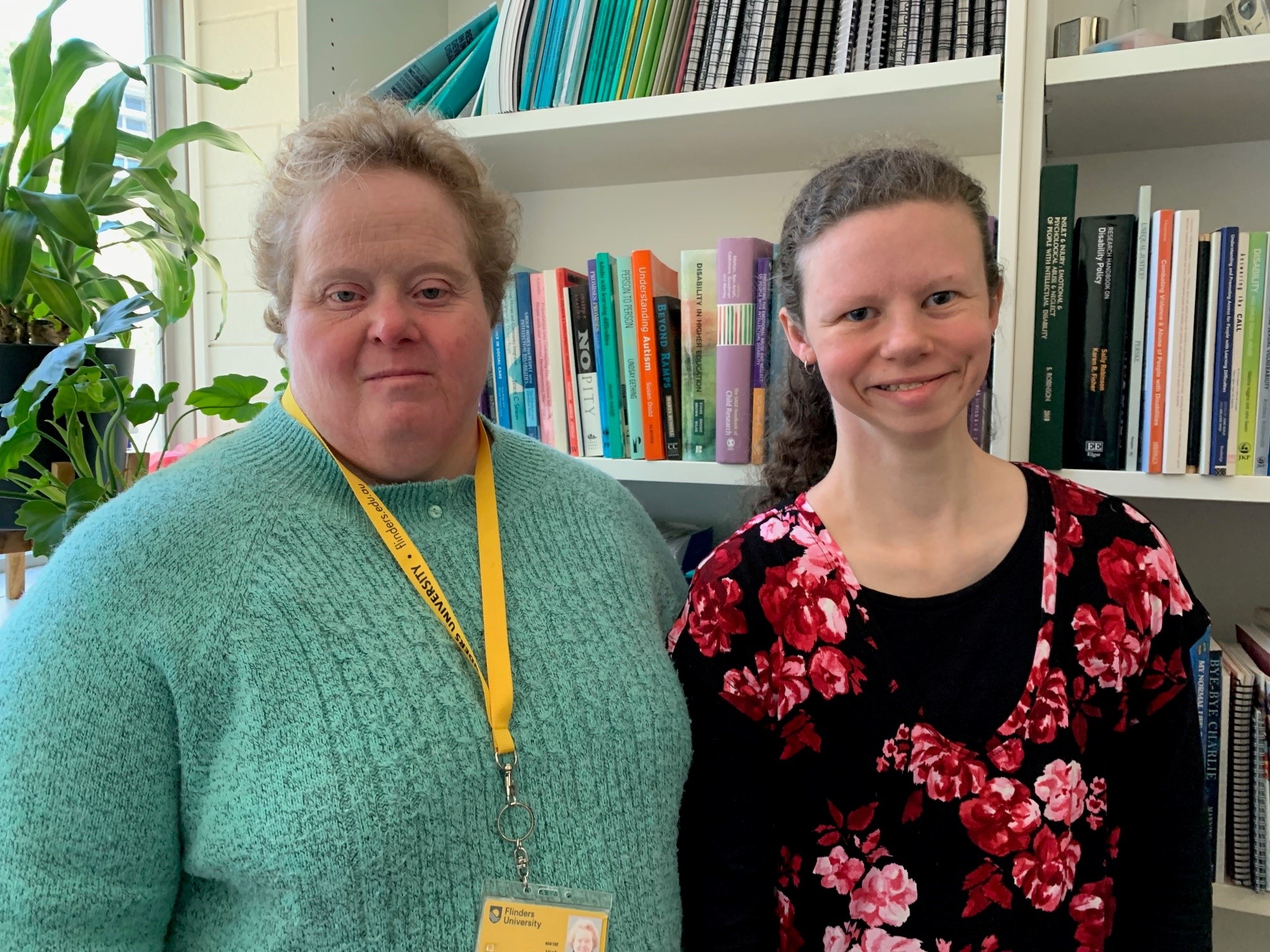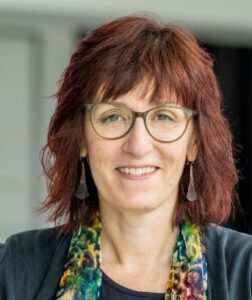
People with intellectual disabilities are exposed to an increased number of negative experiences, including mistreatment by support workers. Coined by the research team led by Flinders’ Caring Futures Institute’s Professor Sally Robinson, the term ‘everyday harm’ refers to situations that cause people with disability to feel humiliated, silenced or offended, like being ignored or demeaned.
Funded by the Australian Research Council Linkage Program, Professor Robinson is leading a project aimed at understanding, responding to and preventing ‘everyday harm’ in the working relationships between young people with cognitive disability and their support workers.

A key aspect of the research involves the active inclusion of community researchers with intellectual disability. Through co-production with community researchers Ruby Nankivell and Rachel High from Flinders University, along with Hannah Ogden and Tyra Buteux from Northcott, the project ensures that the perspectives and experiences of people with disability are not only acknowledged but are integral in the research process.
Ruby and Rachel, as community researchers, are deeply involved in all aspects of the project from research design to analysis. They play a crucial role in shaping the research, ensuring it is relevant and makes sense to the participants, and offering valuable insights on the findings.
Professor Robinson emphasised the importance of this inclusive approach, stating, “What is unique about this project is having the resources and structure to be able to employ four Community Researchers across the full three years. This has allowed us to really deepen and extend how we can learn from people’s firsthand experiences, their valuable insights into how things feel and advice on effective ways of doing things.”
The project involves interviewing 50 pairs of young people with cognitive disabilities and their support workers. In a series of two interviews, participants discuss the steps they take to work together effectively, avoid harm, and resolve any issues that may arise. This in-depth analysis aims to provide a holistic understanding of the steps that young people with disability and their support workers take to address harm which is important for shaping positive practice in the future.
To ensure the project’s effectiveness, a policy review and scoping review have been undertaken which community researchers have been actively involved in making Plain English summaries and facilitating workshops for the participants to inform the next phase of the research.
The project has brought together nine industry partners, including the NDIS Quality and Safeguards Commission, VACRO, Purple Orange, Northcott, SA Department of Human Services, Bedford, Mable, Disability Advocacy Network Australia (DANA), Novita, and genU. This collaboration is considered the most complex linkage project undertaken by Professor Robinson, highlighting its significance.
“The involvement of multiple industry partners underscores their recognition of the project’s importance. The diverse perspectives and resources are very effective in enhancing its impact.”
Community researcher Ruby expressed her enthusiasm for the project, saying, “I hope we will learn from the interviews we have been doing. I would like people with disability to have their voice, and hopefully their support workers will understand what they are feeling and have a connection and understand what every day harm is.”
Rachel highlighted the positive learning experience, stating, “People with disability and support workers will understand what they need to do to gain a good relationship. They may want to read or learn about what to do from our project resources.”
You can find out more about this initiative and our other projects and their outputs on the Research in Disability and Community Inclusion website: https://www.researchdci.flinders.edu.au/

